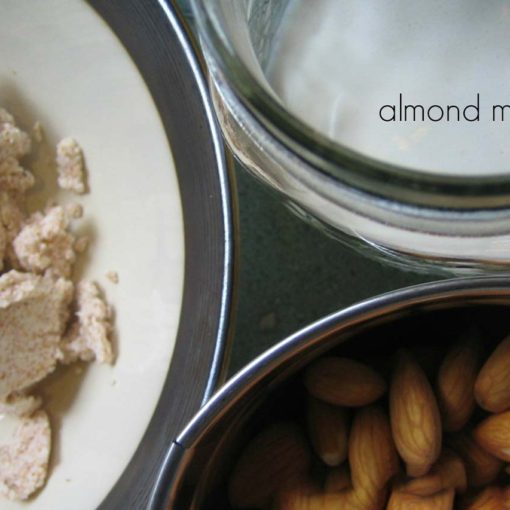Smells are powerful and the fragrance industry knows it.
The perception of smell isn’t only of the sensation of the odors themselves but also of the experiences and emotions associated with these sensations. As you well know, smells can evoke strong emotional reactions. Our olfactory receptors are directly connected to our limbic system, which is the most primitive part of our brains, and thought to be the seat of emotion. Our thinking brains recognize smells relatively late after the limbic system has been stimulated. So, by the time we perceive a particular scent, it has already activated the primitive brain, triggering a more deep-seated emotional response.
The fragrance industry knows this oh so well, and has capitalized on it to get us to buy perfumes, lotions, shampoos, etc. that have smells that many of us perceive to be pleasant and have positive associations with. Of course, many of these fragrances are based on smells of nature–flowers and spices that evoke visions of spring, summer, cozy ski lodges, or fresh laundry.
It seems so innocent, really. Who wouldn’t want to have her hair smell like a beautiful summer day or her pillow to smell like peaceful lavender lulling her to dreamland? Maybe it makes you feel more romantic when your partner has an “oceany, yet dark, rum smell” as a popular men’s cologne describes itself.
There are endless positive associations to fragrances, and probably just as many negative ones, even to smells that are supposed to be positive–like when someone over-douses and stands next to you in the elevator to the 25th floor.
What!?
Here’s the rub. Fragrances, especially if they are manufactured synthetically to be put in perfumes, lotions, cleaning products, laundry soap, you name it, are often, almost always somewhat toxic. Yes, TOXIC. Even your lavender dryer sheets.
According to Beautycounter, “‘Fragrance’ is considered a trade secret, so companies don’t have to disclose what it is. Usually, it is a synthetic concoction that includes phthalates and synthetic musks, which are hormone disruptors, as well as chemicals that are allergens and neurotoxins.” The word “fragrance” on the label may represent many ingredients, sometimes hundreds.
But you trust your brand because they claim to be “clean” or use “natural” ingredients. I know–I did too. If I bought it at the health food store, I was confident it was safe. However, the agency that determines what is safe in our personal care products, the FDA (Food and Drug Association) has very little authority over cosmetics unlike other products it regulates, such as drugs, food, biologics, and medical devices. In fact, personal care products, including fragrances, are some of the least-regulated consumer products on the market. Remarkably, the FDA does not require that cosmetic ingredients, including fragrance, be assessed for safety before they go on to the market.1 Furthermore, the FDA does not require companies to register with the FDA, file the ingredients used, or even keep a record of injuries related to the use of their products. There is a voluntary data collection program if manufacturers wish to participate.
Ok, so if you’re thinking what I did, you’ll buy “unscented” or “fragrance free” versions of the products you love. Not so easy. Just because it says it is unscented or fragrance free there is no guarantee that the product does not contain fragrance chemicals. Since “unscented” and “fragrance free” have no legal definition, these words can be used any way the company chooses.
FDA
Surprisingly, the FDA depends on the fragrance industry’s voluntary agreement to eliminate or limit certain ingredients that have been shown to cause irritation, allergies, and other skin problems. After all, the amount of time, research, and expense involved in legally banning an ingredient is too much for the FDA to deal with.
The FDA does not require safety testing of any ingredient that goes into cosmetics or perfumes. Only once the product is on the market does the FDA have any regulatory authority. But then, the FDA must prove in court that the product is unsafe before it can require the product be recalled. You can guess how often that happens.
Many of the ingredients used in fragrances have little to no safety testing done on them. Most of the safety testing that has been done is about the dermatological effects of chemicals in fragrance. Of course, there are often effects on the respiratory system, the brain, and other organs of the body, but they have not been determined through testing on individual chemicals. Neither have they tested the combinations of chemicals used when multiple products are combined (think of your morning routine).
What to do
So, what can you do? There’s no way to be 100% safe and live a “normal” life. There needs to be a balance of compromises when you make healthy choices so that you can protect yourself and your family, yet still be a part of your community and culture without being completely ostracized. Of course, you can’t control others and environments outside your home, so that just means you do the best within your own home. Do your own research and consult with experts who know companies and brands that you can trust. We’ll get you started here. We’d love for you to share any information you may have on the topic in our comments section. Let’s work together to make the world a healthier place.
We’ve chosen to partner with a couple of companies because of their dedication to safe and beautiful products. Both Beautycounter and Young Living provide educational information, action steps and numerous choices of products that can easily and safely replace ones you are using if you’re ready to make the move.
More on fragrances:
Healthy Child Healthy World: http://www.healthychild.org/what-you-need-to-know-about-fragrance-a-trade-secret-with-not-so-secret-health-implications/
On greener products:
Environmental Protection Agency: https://www.epa.gov/greenerproducts
Consumer Guides:
Environmental Working Group: http://www.ewg.org/consumer-guides
https://www.fda.gov/cosmetics/cosmetics-laws-regulations/fda-authority-over-cosmetics-how-cosmetics-are-not-fda-approved-are-fda-regulated






